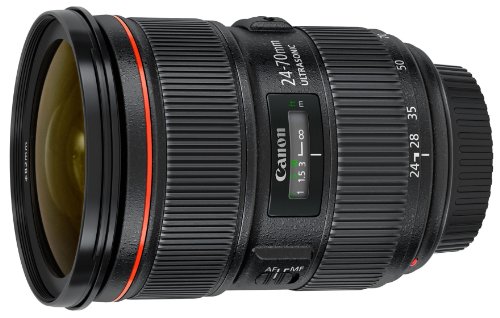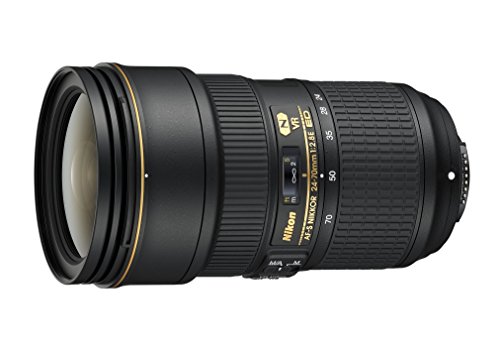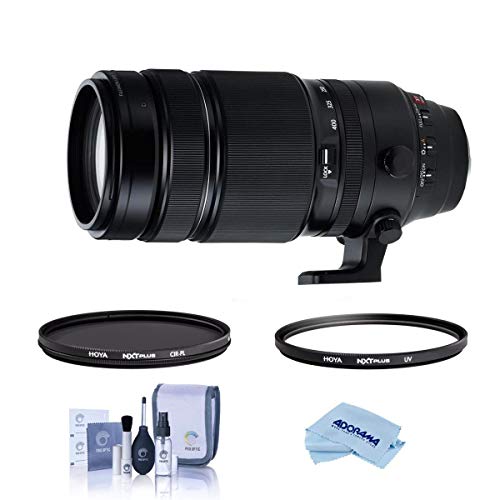The Best Camera Lens For Car Photography in 2024 - BestCameraProduct
Best Camera Product Team Apr 26, 2024 6:18 PM
Top best camera lens for car photography chosen by experts here. Click to see the review and price with best deal for you today.
Overview
When shopping for a camera lens, it's important to keep a few factors in mind that pertain specifically to best camera lens for car photography.
To begin, pick a focal length. It's best to use a wide-angle lens if you want to get the full car in the shot, while a telephoto lens is ideal for getting up close and personal.
The second step is to settle on an aperture size. When lighting is poor, a larger aperture will allow more light in.
When everything is in place, autofocus mode selection is the final step. You'll want a lens with quick autofocus speeds if you plan on taking pictures of moving vehicles.
As such, I'll list a few of the best lens for car photography here for you to consider.
- BCP Ranking9.8
BCP is a ranking system developed by BestCameraProduct.com. BCP Ranking has no relationship or impact on any manufacturers or sales agent websites. Learn more
- BrandCanon
- BCP Ranking9.8
BCP is a ranking system developed by BestCameraProduct.com. BCP Ranking has no relationship or impact on any manufacturers or sales agent websites. Learn more
- BrandSony
- BCP Ranking9.7
BCP is a ranking system developed by BestCameraProduct.com. BCP Ranking has no relationship or impact on any manufacturers or sales agent websites. Learn more
- BrandCanon
- BCP Ranking9.7
BCP is a ranking system developed by BestCameraProduct.com. BCP Ranking has no relationship or impact on any manufacturers or sales agent websites. Learn more
- BrandNikon
- BCP Ranking9.5
BCP is a ranking system developed by BestCameraProduct.com. BCP Ranking has no relationship or impact on any manufacturers or sales agent websites. Learn more
- BrandCanon
- BCP Ranking9.4
BCP is a ranking system developed by BestCameraProduct.com. BCP Ranking has no relationship or impact on any manufacturers or sales agent websites. Learn more
- BrandNikon
- BCP Ranking9.3
BCP is a ranking system developed by BestCameraProduct.com. BCP Ranking has no relationship or impact on any manufacturers or sales agent websites. Learn more
- BrandNikon
- BCP Ranking9.2
BCP is a ranking system developed by BestCameraProduct.com. BCP Ranking has no relationship or impact on any manufacturers or sales agent websites. Learn more
- BrandSony
- BCP Ranking9.0
BCP is a ranking system developed by BestCameraProduct.com. BCP Ranking has no relationship or impact on any manufacturers or sales agent websites. Learn more
- BrandSony
Last update on 2024-04-26 / Affiliate links / Images, Product Titles, and Product Highlights from Amazon Product Advertising API
We have 3 famous brands from Canon, Nikon to Sony of the best camera lens for car photography that you're looking for. Check our review here.
1. Best Canon lens for car photography
We have 3 options for you:
a. Canon lenses f 2.8: Canon EF 24-70mm f/2.8L II USM
Specifications:
- Lens with an EF mount and a full-frame sensor
- Variable from f/2.8 to f/22
- Two UD elements, one super UD element
- Composed of three spherical parts
- Fluorine coatings and ultra-violet spectra
- An AF system using a ring-type ultrasonic motor
- Buildings that are protected from the elements
- 9-blade diaphragm in circular cross section
b. 35mm car photography of lens: Canon EF 35mm f/1.4L II USM
Specifications:
- Lens with an EF mount and a full-frame sensor
- Between f/1.4 and f/22, the aperture can be adjusted
- The refractive optics blue spectrum element
- One UD element and two aspherical elements
- Protection at the subwavelength level
- An AF system using a ring-type ultrasonic motor
- Override the autofocus at any Time
- The fluorine coating and weatherproof construction are two of the features that set this product apart
- 9-blade diaphragm in circular cross section
c. Best focal length for car photography: Canon EF 70-200mm f/2.8L IS III USM
Specifications:
- Lens with an EF mount and a full-frame sensor
- The variable aperture can be adjusted between f/2.8 and f/32
- A single piece of Fluorite
- Element and the five UD components
- Surface Treatment with Air-Filled Spheres
- An AF System Using a Ring-Type Ultrasonic Motor
- An Optical Image Stabilizer
- The Focusing Range Limiter and the Internal Focusing System
- The fluorine coating and weatherproof construction are two of the features that set this product apart
- Tripod neck support that can be detached and rotated
- 8-Blade Diaphragm Shaped Diagonally
d. Why and why not you should buy
Advantages:
- The majority of EF lenses offer high levels of sharpness.
- L-series lenses are top-notch and produce negligible image distortion.
- Fantastic assortment of prime and zoom lenses for all sorts of auto photography.
Disadvantages:
- L-series lenses are more heavy and weighty to carry along.
Overall:
Canon EF lenses continue to be among the highest-quality options for photographers. These Canon lenses are adaptable, serving as a perfect fit for both full-frame and APS-C format cameras.
The sharpness and clarity of images captured with Canon EF prime lenses, such as the 35mm, are legendary. Primitive lenses from the L-series usually feature a larger aperture, between f/1.8 and f/1.4. For nighttime car photography and for adjusting the depth of field, this is a huge advantage.
The Canon EF mount also supports some excellent telephoto lenses. The 70-200mm is the best low light lens canon. It looks fantastic and is quite robust. Similarly to the 24-70mm, it keeps the f/2.8 aperture throughout the zoom range, substantially enhancing its usefulness for shooting automobiles. When shooting, you may play around with various perspectives and compositions thanks to the lens' variable focal length of 70-200mm.
2. Best Sony lens for car photography
a. Best lens for shooting cars: 35mm f/1.4
Advantages:
- Fast, silent, and precise autofocus performance.
- It has excellent resolution.
- Incredibly soft bokeh
- Both the CA and the distortion are kept to a minimum.
- The construction is sturdy.
Disadvantages:
- Huge and bulky for a mirrorless lens.
Overall:
Sony has introduced a 35mm f/1.4 lens to the FE-mount for photographers who want exceptional low-light performance and enhanced subject isolation and background blur. It provides photographers with a versatile, wide-angle perspective that works well for landscapes, cityscapes, and car portraits.
This lens is fast, sharp and providing photographers with a classic perspective and high-caliber optical performance.
b. Best lens for car videography: 24-70mm f/2.8
Advantages:
- Outstanding picture quality
- Exact focusing
- Delightful blurred backgrounds
- Rock-solid construction
- Customized buttons
Disadvantages:
- Heavy and expensive
Overall:
The Sony FE 24-70mm f/2.8 GM is a bright, conventional zoom lens with a wide-angle to short telephoto range, superior G Master optics, a sturdy build, and a constant maximum aperture of f/2.8. The 24-70mm f/2.8 is a versatile lens that excels in a wide range of photography applications.
c. Good lenses for car photography: 70-200mm f/2.8
Advantages:
- Extremely high levels of sharpness are maintained across the whole focusing range, making it competitive with prime lenses like the Zeiss 55mm f/1.8. The perfect lens for cropping images.
- Nice, smooth, spherical bokeh
- Quicker focusing speed.
- The resulting images are stunning. Superior intellectual capacity.
- Image stabilization has been a thing of beauty.
- It's easy to find and use each of the buttons and switches.
- When zooming in on a subject, it's helpful to have a constant focus distance.
Disadvantages:
- Small size of the tripod mount.
- The zoom ring is a little too tight, making it difficult to turn with 2 fingers.
- When shooting video, it's not pretty to zoom in and out without a mount
Overall:
Sharpness is really good indeed at f/2.8 across the full zoom range, and it improves to outstanding by f/4. The distortion is slightly worse than typical for a lens of this sort, but the color fringing is very low. This lens' 2-stop optical stabilizer isn't as powerful as those found in competing models, but it benefits from the in-body stabilization included in more recent Sony cameras.
3. Best Nikon lens for car photography
a. 35mm lens for car photography: 35mm f/1.4
Advantages:
- Auto focus is swift and silent. The focus was remarkably precise even when lighting conditions were less than ideal.
- The sharpness and evenness of the colors are superb. Using this lens wide open makes the subject "pop" out of the background's smooth bokeh.
- This lens's excellent balance makes it ideal for use as a "walk-around" lens when adventuring. This is not a light lens, but it is not so top-heavy that it would tip over a tripod.
Disadvantages:
- Pretty hefty and cumbersome.
- High in cost
- There is some blurring of edges at larger depths of field.
Overall:
The lens's sharpness is uniformly great throughout the frame at most apertures, although as is typical with "fast" lenses, it suffers a noticeable loss of sharpness at the edges and corners when shot wide open, and vignetting is also quite strong. There is hardly any lateral chromatic aberration, even without using the automatic correction featured in modern Nikon cameras. Bokeh fringing (longitudinal/axial chromatic aberration) is especially noticeable when photographing at the largest aperture settings. This manifests as magenta or green haloes around foreground or background edges, depending.
b. Best 24mm photography lens for car: 24-70mm f/2.8
Advantages:
- It's a sharp lens with a decently sharp image throughout.
- The color saturation is excellent, and the pictures are quite vivid
- There is a fixed f/2.8 aperture available throughout the entire focal length of the lens.
- Even with the two stops of slowdown, it's still quite fast, especially when set to 24mm.
- It has lightning-fast autofocus.
Disadvantages:
- This is a heavy and soft lens
- For all focal lengths, edge sharpness is terrible when the aperture is wide open.
Overall:
There is no denying that the lens you have before you is an excellent one. In terms of clarity, I thought it was fantastic. Surprisingly, the vignetting persisted all the way to f/8; however, I typically don't mind and sometimes even appreciate a little amount of vignetting. With a maximum aperture of f/2.8 for the entirety of the zoom range, it is quite quick, and the focal range is well in the sweet spot for the most of my trip photography needs. Although the inclusion of VR has its benefits, it also has drawbacks in the form of cost, bulk, and size.
c. Best vehicle camera lenses: 70-200mm f/2.8
Advantages:
- In low light situations, the f/2.8 aperture is particularly impressive.
- Focuses quickly and is one of the most uniquely shaped lenses.
- After you've locked your focus, the focus ring in the back makes it simple to make minor adjustments with a single finger.
- At 200mm and f/2.5, the bokeh is beautiful and the compression is just right.
Disadvantages:
- High cost
- Large and Burdensome
Overall:
The Nikon 70-200mm f/2.8E FL VR is a high-quality lens that won't let you down. The lens's durability is ensured by the use of a metal inner core and a plastic outer shell. The bokeh, or the quality rather than the degree to which the background is blurred, is excellent. This is akso a lens that is a step above the others in terms of focusing speed.
1. Which are good lenses for car photography?
To get the best results, your focus length choice is crucial.
In the world of vehicle camera lenses, these three lenses are used commonly:
- 35mm f/1.4: If the vehicle is stationary, the best lens to use is a 35mm f/1.4. Without having to back up too far, you can get shots of the entire area and the vehicle. Furthermore, the low f-stops (wide apertures) achievable with a prime lens make it ideal for producing a pleasing bokeh effect.
- 24-70mm f/2.8: If you want to take pictures of cars, the 24-70mm is the best lens cars to use. Any lens may be used to take both close-up and faraway photos. If you aren't too far away, this zoom lens is perfect for capturing moving vehicles.
- 70-200mm f/2.8: If you need to photograph from a great distance, such as at a racetrack, a 70-200mm lens will allow you to safely zoom in on the action without getting too close to the subject. To avoid blurring caused by motion, keep your shutter speed high.
2. What could damage a lens?
A lens's worst enemies are moisture and dust. Dust and moisture—from a drop to a downpour—can ruin a lens. Consider high-resistance lenses.
3. Which cameras do photographers use to shoot cars?
Best camera for outdoor photography of car: Nikon Z6 II, Sony a7R IV
Best camera for professional pictures of cars: Sony a7 III, Fujifilm X-T4


























